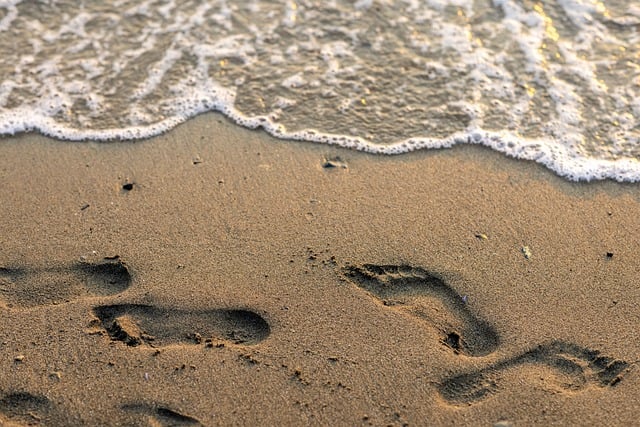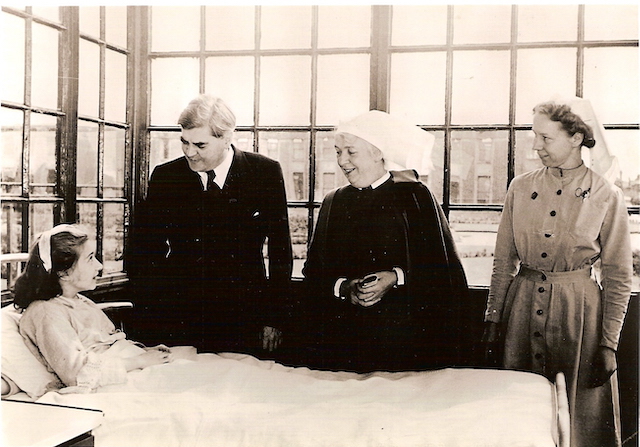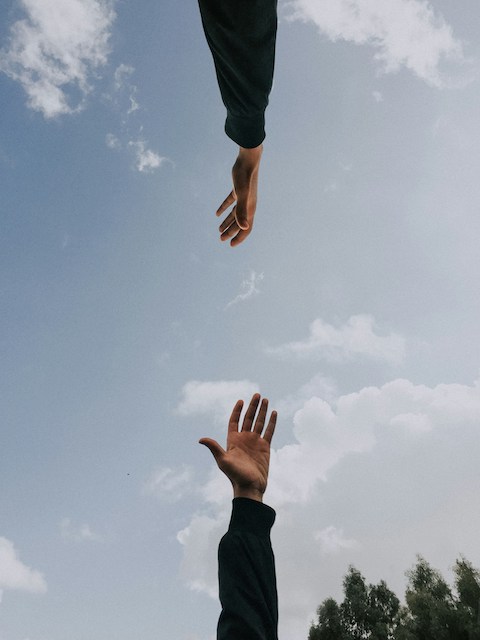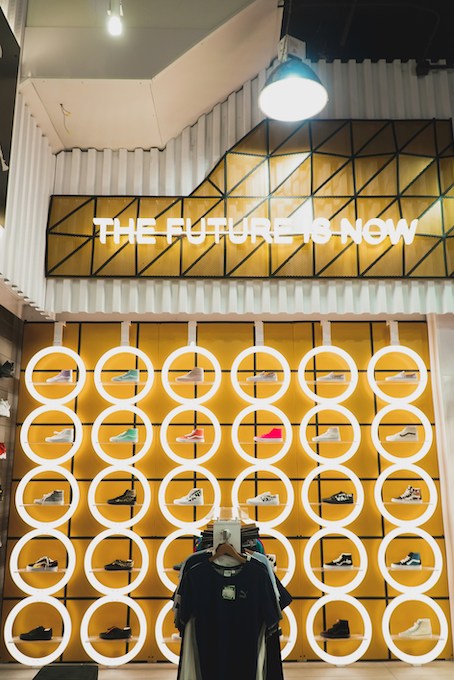Journal
Articles

Birthmarks
There’s no denying the pride and glory that comes with being born Aboriginal and knowing it, along with knowing the history of my culture. Yet with this comes a weight, attached by invisible rope tied by the hands of colonial settlers. Aboriginal people live with the death and damage our ancestors have experienced since 1788, while trying to outweigh it with the strength we inherit from the 2,000 generations that came before us. Cultural integrity is one of many facets of Aboriginal identity, and a testament to our reclamation of social governance led by our own communities. Aboriginal people recognise the power and impact lore and values have on the body and mind, and the life elements between, and this fuels our fire to design structures that allow our knowledge and history to be at the forefront of the services our people receive. Certainly, this powered my need to be working within the community, to acknowledge and understand the strength we find in the face of difficulty and push it into the valleys of my physical form as an Aboriginal creative.

Healthcare is other people
‘I see a lot of junior doctors suspend what I think of as their natural self during training,’ Bravery tells me – the self that is patient-centred and came to the profession because they wanted to help people. ‘They think that once they get far enough along the training pathway then their natural self will just come rushing back. But often it doesn’t.’ With this observation, Bravery identifies what is known in the broader education context as the ‘hidden curriculum’, the unwritten and untaught – and generally negative – behaviours that we see in those around us and learn to emulate to assimilate and excel. In the medical context this usually means a retreat from patient-centredness, a harried and sometimes imperious air, and a concern for money and distinction. Medical students are told about patient-centred care… We labour over weekly theoretical case studies during our pre-clinical (that is, classroom) years to the constant refrain from tutors to think of the patient’s experience and social circumstances.

Drowning in a puddle
The thought of being accepted is terrifying when you’re so used to not being accepted. You expect the worst because the worst is what you’ve become accustomed to. The people in that meet-up group will become your closest friends for the next year. You’ll come to understand that they worry about the same silly little things you do. But those silly little things aren’t so silly and they’re not so little. We just designate them as such because that’s how we’ve been taught by some of the people around us – who expect us to behave in the exact same way they do. But life just doesn’t work like that. Different experiences create different strengths and weaknesses in all of us.

Conferral
Beneath my fantasy of a regular wage is the puerile hunch that if I stay in academia, I can regain some of the nervy possibility I held as an undergraduate student. It was at university that I first met people whose days were preoccupied with thinking, reading and writing, revelatory mostly because they were compensated for these activities with bourgeois trappings and validation. With hindsight, I can recognise that my straining so doggedly to become the kind of person who succeeded according to the university’s metrics mainly taught me what bell hooks says is the primary lesson of college – namely, ‘obedience to authority’.

Finding the right phenotype
I paused to consider the possible benefits of a diagnosis. If I was autistic, my disinclination towards hugging, eye contact and small talk would stop being seen as a sign of my underlying coldness and instead be considered a legitimate accessibility need. I imagined a whole new world where the federal Disability Discrimination Act (1992) would be my shield, protecting me from the scourge of ‘camera-on’ Teams meetings. Could I insist on my own four-walled office at work, and get out of the cacophony of the modern open-plan office too? Maybe my new condition could even explain away my patchy work record and reluctance to accept underwhelming authority figures.
But I already had a label. One that, like autism, regularly stirred up moral panic around wokeness and social contagion. As a recently diagnosed transgender person, I was already part of a highly online, over-educated and underemployed cohort, routinely blamed for stifling free speech as well as both maintaining the gender binary and destroying it. The alt-right discourse was already aflame, decrying the social scourge of everyone wanting to be seen as a ‘special snowflake’ and the creeping ‘politics of victimhood’. Did I really need to inhabit a second suspect identity?

When adults are at risk
One significant subset of our modern adult-safeguarding environment is elder abuse, which we know is a significant and under-reported problem. In 2021 the Australian Institute of Family Studies released the results from the first-ever broad survey of elder-abuse prevalence in Australia. This showed that 14.8 per cent of adults aged sixty-five and over had suffered abuse in the previous twelve months. Importantly, only a little more than one third of people who experienced abuse sought help.

Uninsurable nation
AS I DRIVE into the small Victorian riverside town of Rochester, a banner tied to a metal fence greets...

The inspirations of radical nostalgia
There is nothing natural or inevitable about the ‘decline’ of history and the broader arts and humanities, any more than there is the destruction of nature. Neither are passive or natural processes; both occur as a consequence of deliberate decision-making made in accordance with ideological preferences, usually supporting the material objectives of the vested interests that systematically corrupt our democracy and society.
Redeeming universities and other public institutions requires sustained political effort. The decline of academic history can be reversed through ending the ideological sway of neoliberal managerialism in universities, the allocation of reasonable levels of resourcing, and the provision of job security and professional autonomy to sufficient numbers of historians, plus time and space to learn for their students. Loss of historical consciousness, unlike extinction, need not be forever. With air returned to their lungs once more, the disciplines preoccupied with human purpose and meaning, fostering habits of critical thinking, are amenable to full resuscitation.

Radioactive fallout
The quake lasted six minutes – the office floor jolted convulsively; metal shelves rattled, files fell with a cacophony of thuds, and the structure of the building seemed to be squeaking. And then it stopped. My office building hadn’t collapsed. Neither had our apartment; my husband and son weren’t hurt. But it wasn’t the end. The Fukushima Daiichi Nuclear Power Plant had lost power, which was required to cool both the reactors and spent fuel rods. The government was braced for the worst: massive explosions or core meltdowns. A nuclear emergency was declared at 7.03 pm.

The great divide
In the ’80s, and maybe the early ’90s, fashion was a political statement just like art was…and real art wasn’t about selling out or succeeding in a mainstream context; it was the opposite. The whole idea was that you didn’t want to conform. Anyone who was trying to make money off your art or helping you make money was corrupt or compromised. The last thing you did as an artist or a writer in the ’80s was self-publicise – it was so naff, it wasn’t done. Street cred was what mattered. And I’ve been watching, with social media and the internet, this 180-degree shift over the last few decades.

Put your house in order
For me, collage is about relationships. I’d written the poem using Cicero’s first speech but sensed there should be something more. And I was just so in love with the Latin text on the left-hand side of the book that I wanted to do something with that. I spent some time going through my book collection, stumbled upon Australian Housing in the Seventies and made the connection.

New shoes
This is where I work: the kind of sneaker store that stocks shoes with the names of famous American rappers or athletes. The kind of sneaker store with plywood everywhere and hip-hop and young staff who look like customers except for their fluoro lanyards. Tomorrow a famous American basketballer will drop his new line of shoes. At our morning catch-up, Corrine reads out a list of names. It’s the staff who have pre-paid for the shoes. I am on the list, and Jules and Ruby are too. Corrine reminds us that this is a ‘privilege’ for staff.